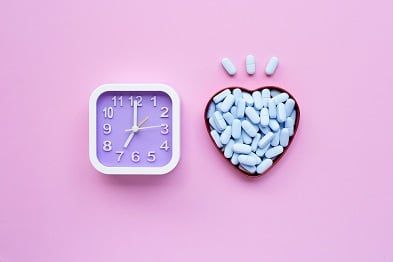By Jason Keil
Valentine's Day is almost here. And while people will try to share how they feel about each other within the confines of social distancing, there will still be intimate moments taking place in many couples’ bedrooms (or anywhere else they feel comfortable).
It's more important than ever to take precautions and be responsible during these moments of connection. And because the coronavirus has dominated the headlines, efforts to prevent the spread of HIV have been overlooked.
The Center for Disease Control found that in 2016 nearly 80 percent of new HIV infections were transmitted from almost 40 percent of people with HIV who either did not know they had it or weren’t receiving care after diagnosis. So in late 2019, the U.S. Department of Health and Human Services introduced Ready, Set, PrEP as part of former President Trump’s plan to end the HIV epidemic by 2030.
The program provides a method of HIV prevention known as PrEP, or pre-exposure prophylaxis, free of charge to those who have a prescription for PrEP, a negative HIV test result, and a lack of prescription drug coverage. The treatment, which requires taking either Truvada or Descovy, the only two PrEP medications approved by the Food and Drug Administration, reduces the infection risk of individuals who have a higher chance of contracting the virus through sharing needles or intercourse. Both drugs have proven effective with minimal side effects when taken correctly.
According to the U.S. Department of Health & Human Services, results have shown that these treatments reduce the risk of getting HIV from sex by more than 90 percent and by those who inject drugs by more than 70 percent. When used in combination with other prevention methods such as condoms, the results of using PrEP treatments are even higher.
A June 2020 article in Bloomberg Law states that Ready, Set, PrEP gives 200,000 at-risk people access to treatment, but Health and Human Services (HHS) reported only 891 participants nationwide. The main reason for the low numbers has to do with the nation’s coronavirus response, per HHS Assistant Secretary for Health Brett Giroir. This news is particularly distressing for Maricopa County, one of the 57 geographical areas prioritized in Trump's plan because of the high occurrences of new HIV diagnoses.
Glen Spencer, executive director of the local advocacy group Aunt Rita’s Foundation, offers several explanations as to why individuals might be hesitant to participate in Ready, Set, PrEP. One is the county’s undocumented population, many of whom are uninsured and could be reluctant to give information to a government agency due to fear of reprisal.
“We have a large Hispanic community, and they might be less inclined to get tested for a number of reasons,” he explains.
Additionally, the costs associated with doctor’s visits and the testing needed to make someone eligible for PrEP can add up for someone who is uninsured, especially with screenings required every three months to stay on the treatment. And many patients are hesitant to speak with a physician about HIV testing and PrEP because of the ongoing stigmas and fear of judgment surrounding their sexual activity.
Spencer points out that HIV testing is readily available throughout the state, including through Aunt Rita’s Foundation. Another location where those at-risk can get the testing, medication, and information they need is the same place they can pick up a Valentine’s Day card and some chocolates, and is likely within walking distance of their home: the local drugstore.
Monica Heberling, PharmD, Pharmacy Manager with Walgreens in Phoenix, says that HIV prevention medications didn’t even exist when she was in pharmacy school. (The FDA approved Truvada in 2012.) Because they're still relatively new, she realizes that those who need PrEP might be nervous they can't afford it.
“I think a lot of people are scared to even ask for a prescription,” she says.
Pharmacies nationwide are participating in Ready, Set, PrEP. And local Walgreens stores are serving their communities by providing patients information on treatment guidelines and prevention options. With people losing their insurance or access to their health care provider due to the pandemic, Heberling believes that pharmacists have a chance to make healthcare more accessible to those who are most in need of it.
“Once the patient has a prescription for PrEP medication, we can assist them by making them aware of it and enrolling them in the program if they either don’t have insurance or are unable to pay for medication,” she says.
Heberling says anyone interested in learning more can start by speaking to their local pharmacist. Patients don't need to bring anything in, and most Walgreens locations have consultation rooms to prevent uncomfortable conversations from occurring while they wait in line. Staff members are trained to keep discussions confidential and stigma-free to comfort patients who may want to discuss anything from testing, results, connecting them with a provider, and other prevention options.
She says, “The barriers that people think are there, we can help dismiss."
For more information about Ready, Set, PrEP, please visit hiv.gov.
